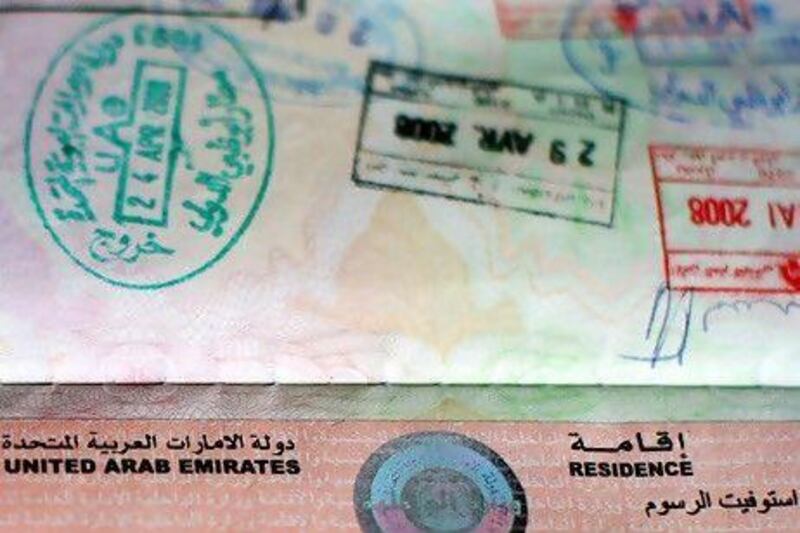Employers across the UAE are struggling to hire workers from nearby Arab countries that have been rocked by unrest amid tougher security checks.
More scrutiny is being applied to security checks, which means clearance can take twice the normal time, say employers and recruiters.
Applications are being rejected flat-out in some cases, particularly for citizens of countries that saw major turmoil such as Egypt, Tunisia and Syria.
"It's not all Arabs. Certain Arab nationals, yes," said a spokesman for Sundus Management Consultancy, an Abu Dhabi-based company that specialises in human resources and recruitment. "Sometimes we need more employees, and it's hard."
The effect on the job market seems to be across a broad spectrum of employees, ranging from service workers in the hospitality industry to mid-management roles.
Some employers have lost valuable time waiting for new recruits to come on board, while others with candidates that are denied work visas must restart their employee search.
The changes in visa approvals started after the Arab Spring, said Dr Olga Kampaxi, the UAE's area director of human resources at Rotana, which operates nearly 30 hotels in the Emirates.
In Abu Dhabi, a representative of the Government's General Directorate of Residence and Foreigners Affairs said visa processing of workers from countries that have experienced unrest had taken longer in certain cases. But there were a number of factors that could come into play.
"It depends on their situation," said Amsha Al Subaiei, a senior customer service manager at the directorate. Also, she added, "it depends on their jobs. There are some titles [of] jobs that are allowed to come here, while others no".
While a recent survey of recruiters in the Gulf found that hiring is expected to pick up during the rest of the year, a full 55 per cent warn that they are running into a talent crunch while hiring Arabs, according to data released this month by the job-searching site Naukrigulf.com.
Some experts warn it has become harder not just for some Arab professionals seeking a new job in the Emirates, but also those who are already here and are trying to renew a workplace or residency visa.
Those seeking to speak at conferences, or just general tourists to the UAE, may also be experiencing delays or rejections.
"Across the board, there have been visa rejections because of the suspicions surrounding a person's background from the Arab world because of the revolt," said Dr Theodore Karasik, the director of research and development at the Institute for Near East and Gulf Military Analysis, a Dubai think tank.
"There's an effort to clean up the environment so that security is preserved, because it is still unknown where the revolt will go [in the autumn]," he added.






